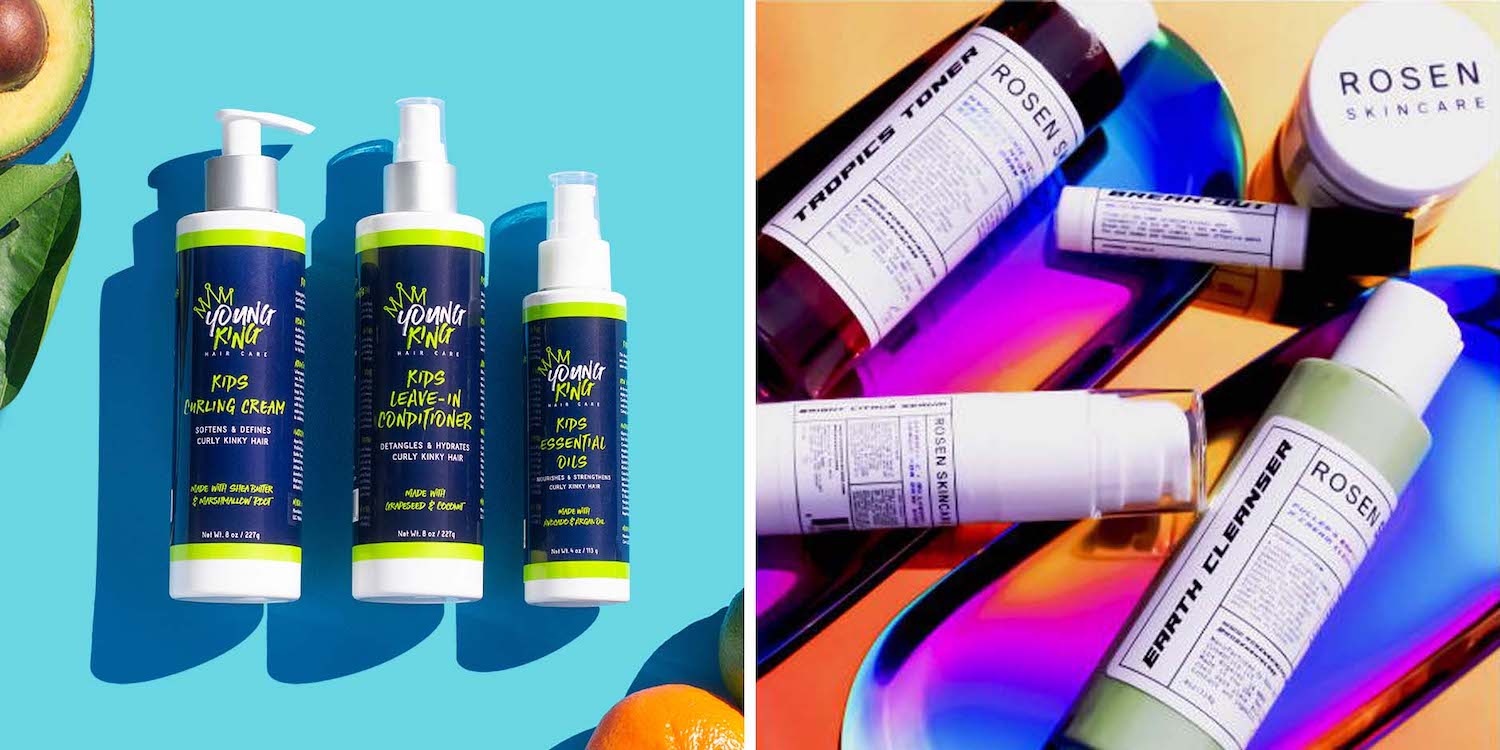
Sustainable products are in high demand. More than 75 percent of Americans say purchasing sustainable products is at least somewhat important to them, according to a survey released last month by Adweek and the intelligence company Morning Consult, with attributes like “biodegradable,” "plastic-free" and "ethically sourced" being the most attractive to consumers. Target is among the retailers looking to answer the call by stocking more sustainable products — and its latest effort looks to push underrepresented founders and their solutions forward.
Announced this week, Target's Building Blocks for Better Products (B3P) program is asking businesses led by women and people of color to "reimagine beauty and personal care products with sustainability in mind," a company representative told TriplePundit in an email.
The program will support nearly 30 businesses owned or founded by women or people in the BIPOC (Black, Indigenous and people of color) community as they seek to launch new products with sustainability attributes, including adherence to Target's own healthy ingredients label, Target Clean.
"Our goal is to support Black-owned businesses and reduce the opportunity gap for women and people of color in business, whether that’s brands we already carry or smaller startups that are not yet at Target," the company said in a statement.

Target looks to develop sustainable products from diverse founders
Target recently published a Q&A with two founders who went through the B3P program, and their stories demonstrate the influence representation can have — and the great ideas that can come forward when people of all backgrounds have a seat the proverbial table.
"If you were to ask me five years ago if I would ever become an entrepreneur, the answer probably would have been 'no,'” Cora Miller, CEO of Young King Hair Care, told Target. "I was quite comfortable in my profession, climbing the corporate ladder. It wasn’t until I had my son in 2017 that my perspective and aspirations completely changed."
Miller's sone Kade was born with a full head of hair, and as he grew older she struggled to find products to help her style it. "I quickly realized, after doing some research and talking to other boy parents, that we are all in the same position — we couldn’t find tailored hair products for black and brown boys," she said.
From there, Young King Hair Care was born, and Miller and her husband leveraged their decades of experience in the corporate world to develop a line of hair care products for boys featuring plant-based, sustainable ingredients. The brand is now available at the two largest U.S. retailers, Walmart and Target, and ships internationally via an online shop.
"We firmly believe that representation is critically important for boys of color," Miller said. "We will continue to play an active role in the industry to ensure black and brown young men are seen and have a 'place' on shelves by creating new product offerings."
The B3P program builds on Target's existing connections with organizations that help major brands develop new ingredients and product formulations that pose less risk to the environment and human health. The chance to work with groups like the product development marketplace Novi Connect and chemical researcher ChemForward means a lot for founders just getting started.
"The connections to ChemForward and Novi are incredibly valued," said Jamika Martin, CEO of Rosen Skincare, an upstart brand looking to "bring the drugstore acne aisle up to speed" with modern research. "As it stands, [Rosen] is a bootstrapped brand that doesn't have access to many platforms like these, so the connections have opened up a wide array of opportunities from product development, formulation, and data to provide buyers around how our brand can continue to grow."
Commitments from retailers put more diverse brands on shelves
This program is part of Target's broader push to spend more than $2 billion with Black-owned businesses by 2025. The retailer is also backing Group Black, a new accelerator looking to deploy at least $500 million in Black-owned media by the end of 2022, with member companies including Essence and Holler.
A number of other major retailers made similar commitments to spend more with Black-owned businesses and other underrepresented founders following the murder of George Floyd and the worldwide social movement that came with it. Retailers including Walmart, Sephora and Ulta Beauty have all pledged to devote more shelf space to Black-owned brands.
The infusion of investment could be a lifeline: While people of color — and particularly women of color — have been launching businesses at a record pace for years now, their enterprises tend to have lower revenues. Still, as of this year white men are now the minority of small business owners in the U.S., and this equity push from retailers could help bring more of those upstarts into the mainstream.
“Every day, I am hearing messages from Black-owned businesses that are scaling into these opportunities,” Aurora James, founder of the luxury apparel brand Brother Vellies, told CNBC. Four days after Floyd’s murder, James founded the 15 Percent Pledge and handed businesses a challenge: "We represent 15 percent of the population and we need to represent 15 percent of your shelf space.”
In the year since, 26 companies — including top retailers like Macy’s and Gap — have signed on and pledged to fill 15 percent of their shelf space with Black-owned brands. “It’s a real game changer," James said of the commitments from retailers. "Ultimately, when we actually empower entrepreneurs, who are in many cases living and working in Black communities, that’s when we’re really going to start to see a big difference across this country.”
Images courtesy of Target

Mary has reported on sustainability and social impact for over a decade and now serves as executive editor of TriplePundit. She is also the general manager of TriplePundit's Brand Studio, which has worked with dozens of organizations on sustainability storytelling, and VP of content for TriplePundit's parent company 3BL.














